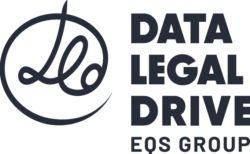Avoiding conflicts of Interest
Were you ever negatively affected or harmed by a co-worker’s decision to put their personal interests, connections, or relationships above the interests of the organization?
Conflicts of interest take many forms. We have all heard about favoritism in hiring or promoting a relative; coworkers that are in a reporting relationship being involved romantically or when someone uses our organization’s resources to promote or fund an outside entity. Giving preferential treatment or unfair advantage to one person or one organization over another fosters resentment, damages productivity and, in many instances, is illegal.
It all comes down to competing interests. Imagine what would happen if a realtor were to represent both a buyer and a seller in a sales transaction, or an attorney were to represent both parties in a divorce. In both cases, it would simply be impossible for these professionals to perform their duties in an impartial manner.
Because so much of our daily professional and personal lives is built on relationships, potential conflicts of interest are pervasive. That is why it is important for us to be able to steer clear of these situations, recognize them when they occur, and address them appropriately.
Conflict of Interest Defined
A conflict of interest exists when an individual’s personal interests unfairly influence his or her actions, judgments, or decisions in the workplace. Not all conflicts of interest are illegal but hiding them or failing to disclose them is. And even the appearance that one can be influenced unfairly can damage the effectiveness or reputation of an individual or an organization. For example, just providing unequal access to critical information can be problematic, even if the information is never actually used.
The following examples illustrate a range of conflicts of interest:
- An employee hiring a company for which his spouse works
- A supervisor basing employee performance reviews on positive evaluations of his performance
- A doctor being paid for prescribing certain procedures or medications
- An employee starting a side business in direct competition with her or his employer
- An employee working for a company, customer or supplier on weekends
- A director consulting to a company that is in direct competition with his organization on whose board he sits
- A Vice President using organization funds for a personal loan
- Exes being in a direct reporting relationship
- An HR director investigating sexual harassment charges against a fellow executive with whom she has worked professionally for years
- A line worker receiving a free resort vacation from a training company and then recommending the training company’s products without comparing them with products from other vendors
- A supervisor using inside information on a bidding process to submit a contract proposal for the project
- A project manager receiving consulting fees from an organization while doing clinical research on its technology
Important Things to Know
Sometimes, to resolve the conflict, it is enough to report it and remove yourself from the situation causing the conflict. For example, you might recuse yourself from participating in the hiring process that includes a candidate whom you know personally. Or you might ask for a job reassignment rather than report directly to or supervise someone with whom you are in an intimate relationship.
An organization’s Code of Conduct describes conflicts of interest in detail, as well as related issues such as giving and receiving gifts or favors. If you have any questions about actual or suspected conflicts of interest, contact the compliance department for help.
Consequences of Non-Compliance
Conflicts of interest are regulated by federal, state, and local laws as well as by governmental, nonprofit, and for-profit organizations, and academic institutions. Such cases are taken very seriously because they can often lead to further unethical behavior, such as fraud, bribery, theft, or insider trading.
Government contractors are subject to regulations regarding organizational and personal conflicts of interest, in which the contractor’s performance on one contract compromises its ability to perform on another contract or to compete fairly in bidding for another contract. In this case, consequences can include being excluded from bidding, having an existing contract terminated, or being barred from obtaining future contracts.
Sometimes it is difficult for company to recognize its own conflicts of interest, so it is important for all of us to be alert to potential conflicts of interest that occur around us. We all must take steps to avoid situations that compromise—or appear to compromise—our ability to do our jobs and make decisions without prejudice or preferential treatment of anyone.
What conflicts have you personally experienced in your personal or professional life? If you perceive a potential conflict for yourself, what are some ways you might ensure that this conflict does not lead to unethical behavior for you and others?






